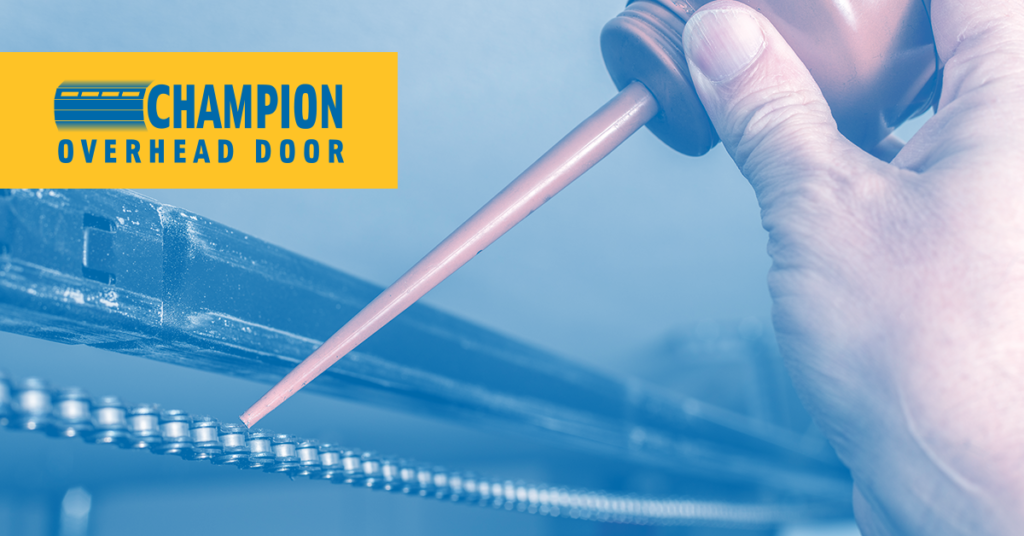Garage Door Maintenance: How to Properly Lubricate a Garage Door

Is your garage door squeaking and screeching every time it opens and shuts? That’s a telltale sign that it’s time for some garage door maintenance. In today’s post, we’ll go over the ins and outs of properly lubricating a garage door, and how you can perform this task easily with minimal supplies.
Why Should I Lubricate a Garage Door?
On top of quieting those annoying squeaking noises, lubricating a garage door is an important part of any regular garage door maintenance. The sounds that you’re hearing indicate that the parts of your garage door aren’t moving as smoothly as they should be, which can interfere with the functionality of the whole thing. By keeping up on lubrication and other maintenance, you can extend the lifespan of your garage door.
What Kind of Garage Door Lubricant Should I Use?
Whatever you do, don’t make the mistake of using an oil lubricant like WD-40. While WD-40 does help equipment run smoothly, it’s actually a cleaning solvent and not a proper lubricant.
We recommend purchasing a garage door lubricant designed specifically for this purpose, which you can find for cheap at most hardware or home improvement stores. They’re easy to apply in a steady stream or spray, and won’t leave a sticky residue all over the place.
You can also use any lithium- or silicone-based spray as a garage door lubricant. We like the aerosol cans with straws for reaching all the nooks and crannies.
What Parts of the Garage Door Should I Lubricate?
You’ll typically want to focus on lubricating three main parts of your garage door:
- Rollers. The rollers are key because they are what makes the garage door go up and down. If you have nylon wheels, avoid getting lubricant on the nylon itself and instead focus on the bearings. Metal rollers don’t require this level of precision.
- Springs. The torsion springs help open and shut the garage door, so proper lubrication is important. Use just enough garage door lubricant to help them move better.
- Hinges.Spray the garage door lubricant at the pivot points, unless you have plastic hinges. Plastic hinges don’t need to be lubricated, and in fact the lubricant can do more harm than good.
It’s important to avoid getting garage door lubricant on the tracks of your garage door, as the grease can attract dirt and dust particles and interfere with the functioning of the door. We recommend simply wiping the tracks with a rag to clean them off.
What if the Garage Door Is Still Making Noise After?
Once you have finished lubricating the different parts of your garage door, you should notice a reduction in noise as the garage door lifts and lowers. If you find that your garage door still doesn’t seem to be functioning properly, it may be time to call in the professionals.
Here at Champion Overhead Door, we provide garage door maintenance services for clients throughout New England. No matter what is going on with your garage door, we’ve seen it all. Contact us today to see how we can help!
